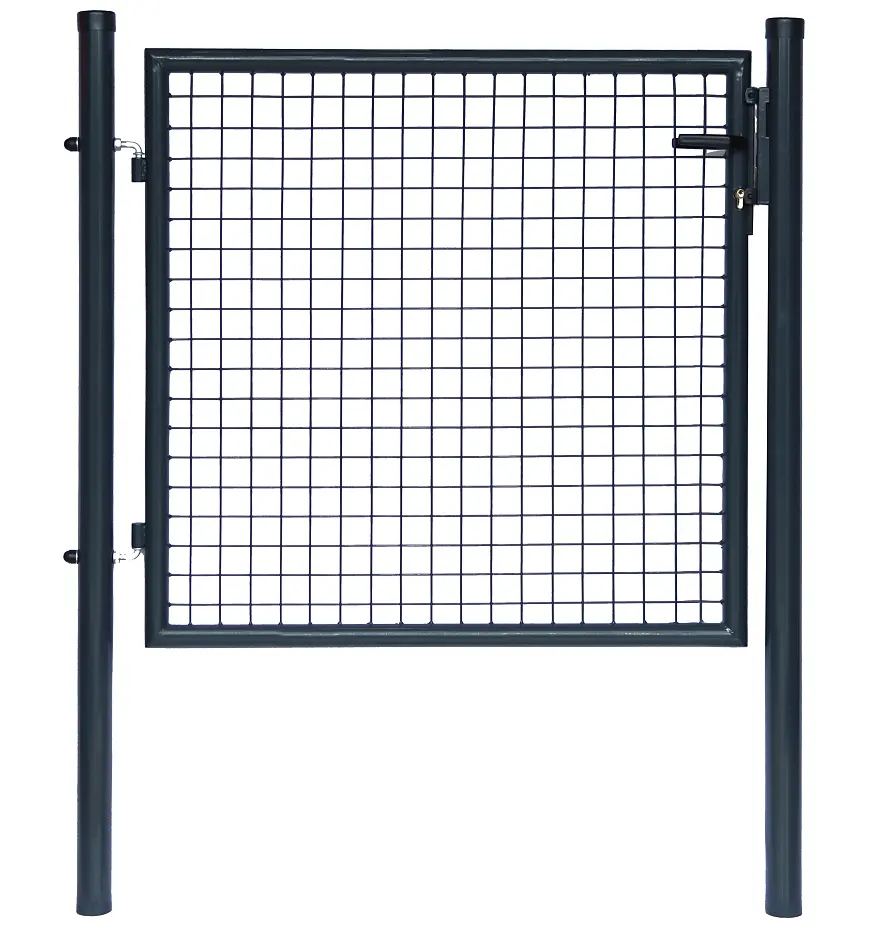The cost of wire mesh fence gates compared to other materials for similar fencing applications can vary based on several factors:
- Material Type: Wire mesh fence gates are typically more cost-effective than solid metal gates, especially those made from high-grade steel or wrought iron. They might have a comparable or lower cost than wooden gates, depending on the quality of wood used.
- Construction Complexity: Wire mesh fence gates tend to be simpler in construction compared to ornate metal gates or those requiring intricate woodwork, which can impact the cost.
- Size and Design: Larger gates or those with intricate designs often cost more due to increased material usage and labor requirements. Wire mesh gates can offer cost savings for larger fence spans due to their lightweight nature.
- Durability and Maintenance: While the initial cost might be lower for wire mesh fence gates, consider long-term costs. They often require minimal maintenance, potentially reducing upkeep costs compared to wooden gates, which might require staining or painting, or metal gates, which might need rust prevention measures.
- Customization: Extensive customization, such as intricate designs or specific materials, can significantly impact the cost. Wire mesh fence gates can be customized to a certain extent but might offer fewer design options compared to some other materials.
- Installation: Installation costs can vary based on the complexity of the installation process. Wire mesh fence gates might have lower installation costs due to their ease of handling and installation compared to heavier materials that require specialized labor or equipment.
- Longevity: Consider the lifespan of the gate. While wire mesh gates are durable, other materials like wrought iron might have a longer lifespan, potentially affecting the overall cost over time.
- Market Factors: Prices can fluctuate based on market conditions, availability of materials, and location.
In summary, wire mesh fence gates often offer a cost-effective solution for fencing applications, especially for larger spans or where minimal maintenance is desired. However, the specific cost comparison would depend on factors such as material quality, customization needs, size, installation complexity, and long-term maintenance requirements, which should all be considered when assessing the overall cost-effectiveness of wire mesh gates compared to other materials.
How does the customization process for wire mesh fence gates work, and what design options are available?
The customization process for wire mesh fence gates involves several aspects that allow for tailored designs to meet specific preferences or functional requirements:
- Material Selection: Wire mesh fence gates come in various materials such as stainless steel, galvanized steel, aluminum, or vinyl-coated steel. Choosing the appropriate material impacts the gate’s durability, appearance, and suitability for different environments.
- Mesh Type and Gauge: Different mesh types and gauges are available, offering variations in pattern, openness, and wire thickness. The mesh type (such as diamond, square, or rectangular) and gauge (wire thickness) can be chosen to meet specific aesthetic or functional needs.
- Aperture Size: The size of the openings in the mesh can be adjusted to provide the desired level of visibility, security, or airflow while ensuring the gate’s structural integrity.
- Coatings and Finishes: Wire mesh can be coated or finished in various colors, textures, or protective coatings like powder coating, wire mesh fence gate PVC coating, or galvanization. This allows customization to match architectural styles or preferences and provides enhanced durability or weather resistance.
- Frame Design: The gate’s frame can be customized in terms of material, size, and design. Frame options may include different metals, tube shapes, or welded vs. bolted assemblies.
- Additional Features: Gates can be accessorized with features like locks, handles, hinges, or decorative elements to suit functional or aesthetic requirements.
- Design Consultation: Many manufacturers or suppliers offer design consultation services, allowing customers to discuss their needs, preferences, and specifications to create a customized gate design.
- CAD Drawings or Mockups: Some providers offer CAD drawings or visual mockups of the proposed gate design, allowing customers to preview and approve the final design before production.
The design options available for customization in wire mesh fence gates cater to a wide range of preferences and functional needs. By considering material choices, mesh type, coatings, frame design, and additional features, individuals or businesses can create unique and tailored wire mesh gates that align with their specific requirements, whether for residential, commercial, or industrial applications. Working closely with experienced manufacturers or suppliers can help ensure that the customization process meets desired specifications and standards.
